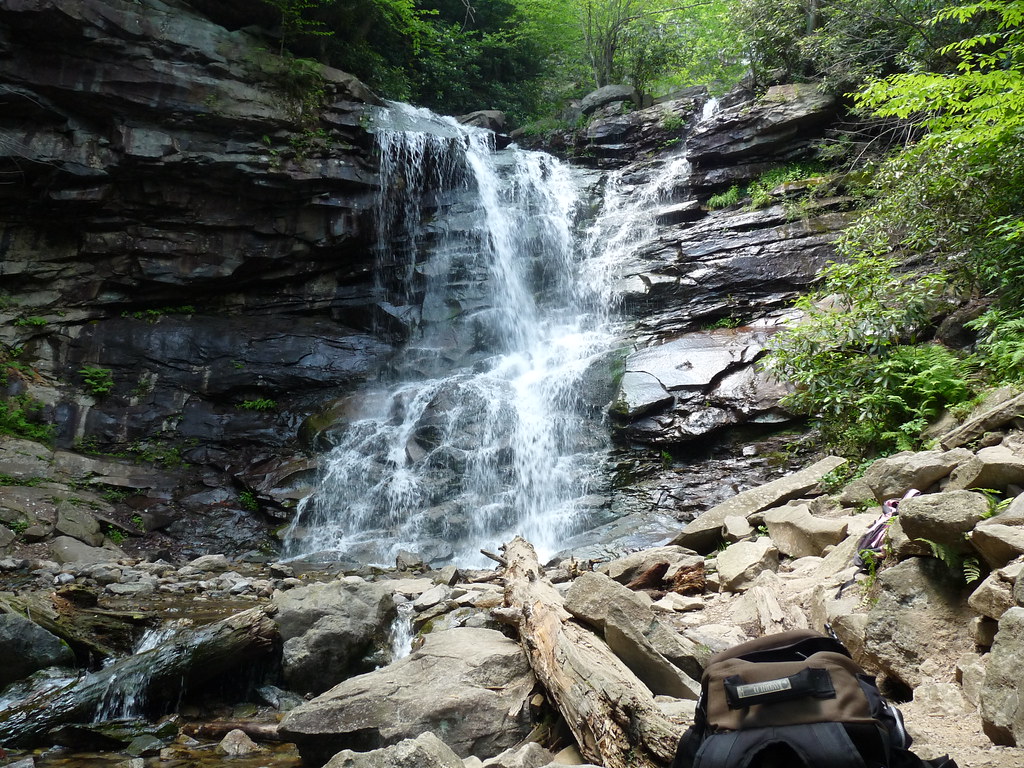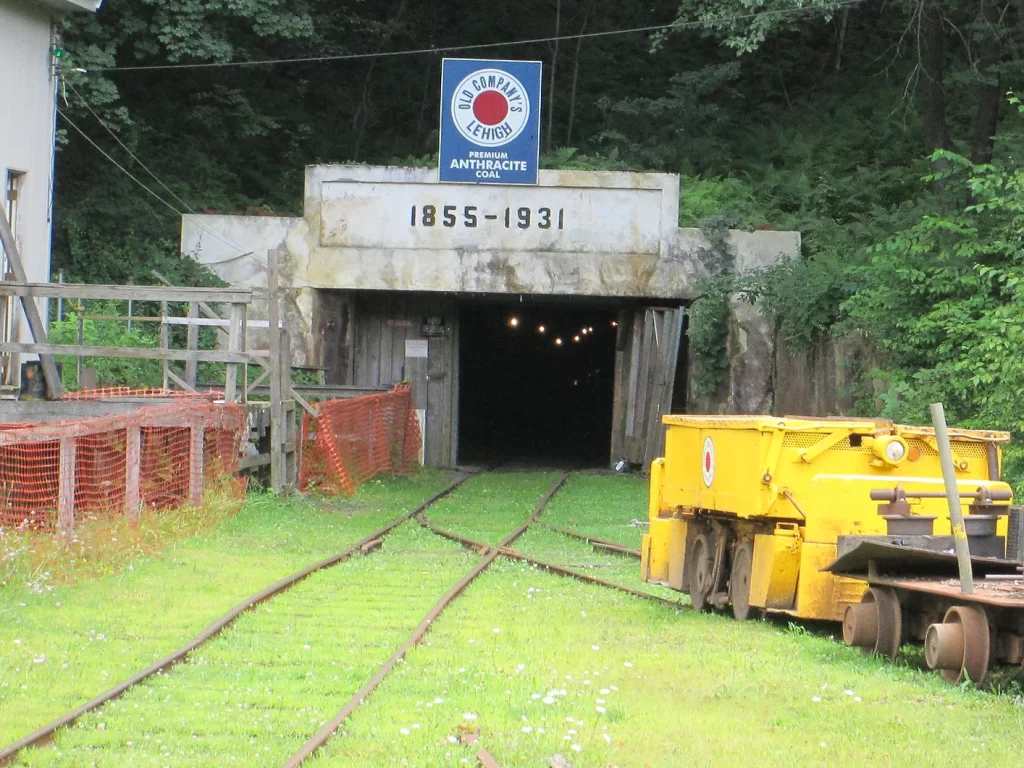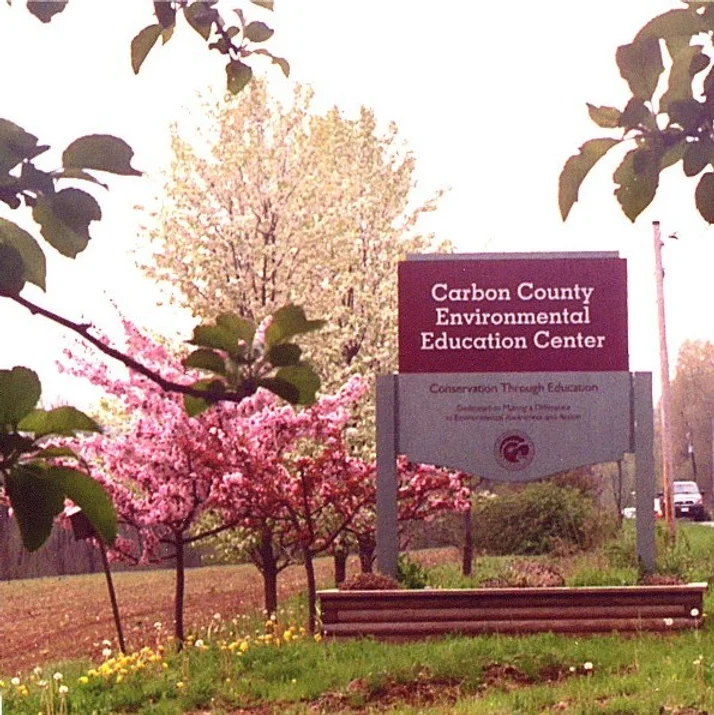Carbon County, Pennsylvania is home to an abundance of natural resources, from lakes, parks and forests for recreation, to coal veins and the Lehigh River which provide residents with some utilities. There are a variety of recreational activities in Carbon County that are part of the county’s natural resources, including: walking, hiking and biking trails, swimming, kayaking, and boating lakes and rivers, and hunting regulated state game lands. The Lehigh River provides Carbon County residents with drinking water, and recreational water activities. Further information about Carbon County water resources is available in the Drinking Water & Water Resources section of this website. The outdoor entertaining ventures of Carbon County bring visitors to the area and boost the local economy, yet increase vehicle traffic and greenhouse gas emissions, while reducing resource availability to local residents.

“Glen Onoko.” Flickr, 11 July 2009, https://www.flickr.com/photos/11028687@N04/3711153244. Accessed 5 May 2024.
Coal mining efforts began in Pennsylvania during the 19th century as the Lehigh Coal and Navigation Company established methods to mine and transport anthracite coal on an industrial network2. This powered economic development and created coal regions in eastern Pennsylvania2. There are fewer coal mines in Carbon County today, and those existing are viewable through the U.S. Energy Information Administration interactive map6. Coal Mine No. 9 provides an educational experience into the history and background of coal mining in Carbon County3. More information on Carbon County coal and energy usage is available in the Energy & Transportation section. This page examines the few renewable energy resources available in Carbon County, and their importance to broader sustainability challenges.

Outlined in Energy & Transportation, the reliance on vehicles to experience Carbon County’s natural resources highlights the sustainability challenges facing the area. The struggles of multimodal transportation in Carbon County are intensified as they can be limited in access to natural resources. The absence of emission records heightens the public health and environmental concerns of coal mining and vehicle road runoff in Carbon County. The area displays traditional conservation efforts, which require community and stakeholder involvement, and innovation embracement to achieve sustainability.
Challenges of sustainability with Carbon County’s natural resource use require attention to coal extraction and water quality, as well as stakeholder engagement with recreational resource protection and accessibility. County residents are crucial partners in aligning their participation in these efforts. The leading government agencies include the Pennsylvania Department of Conservation and Natural Resources, U.S. Environmental Protection Agency, Pennsylvania Department of Environmental Protection, and the Carbon County Commissioners Office for environmental management, policy, and incentives to support sustainable regulation. Educational associations have the capability to demonstrate sustainable systems, while businesses can form partnerships of renewable resource extraction. Investors play the important role of funding sustainable programs, while NGOs advocate for the significance of their engagement and green projects. Sustainable resource management and extraction is possible in Carbon County.
In Germany, Heidelberg Materials GeZero cement kiln is practicing carbon capture and storage, which reduces emissions entering the atmosphere by containing them for further use1. Projects of this nature require advanced technologies and funding, while providing an original method to make resource extraction more renewable. In addition to new technologies, policy can greatly further sustainability in Carbon County. Protecting natural ecosystems allows for their services to be provided for future generations. A reduction of fossil fuel favoring policies and subsidies to benefit renewable alternatives can decrease the need for coal extraction and increase sustainable substitution opportunities. The solution to implement sustainable policy practices faces barriers such as coal lobbyists who prefer the traditional mining process. Education on sustainability is crucial to mitigating the impacts of climate change. The Carbon County Environmental Education Center (CCEEC) provides a space for children and adults to learn about environmental conservation and experience the wildlife they preserve. Carbon County provides a magnificent amount of natural resource assets including: the D&L trail, the Lehighton Outdoor Center, the Switchback Railroad trail, Bake Oven Knob, Mauch Chunk Lake Park, Lehigh Gorge State park, Coal Mine and Museum No. 9, CCEEC, and more available on the Carbon County Asset Map.

Bibliography
1Carbon Capture and Storage (CCS)-Projekt im Zementwerk Geseke.” Heidelberg Materials, https://www.heidelbergmaterials.com/en/sustainability/we-decarbonize-the-construction-industry/ccus/gezero. Accessed 5 May 2024.
2“Coal, Commerce & Industry – History – D&L – Delaware & Lehigh.” Delaware & Lehigh – National Heritage Corridor, https://delawareandlehigh.org/about/history/coal-commerce-and-industry/. Accessed 5 May 2024.
3Doersom, Bryan. “Home | No. 9 Coal Mine.” Wix, https://no9minemuseum.wixsite.com/museum. Accessed 5 May 2024.
4“Gallery | cceec.” Carbon County Environmental Education Center, https://www.carboneec.org/gallery?lightbox=dataItem-j00ydfw5. Accessed 5 May 2024.
5“Glen Onoko.” Flickr, 11 July 2009, https://www.flickr.com/photos/11028687@N04/3711153244. Accessed 5 May 2024.
6“Interactive Map.” US Energy Information Administration, https://eia.maps.arcgis.com/apps/webappviewer/index.html?id=5395ae9a72a04064932c1c11efc1db3e&showLayers=State%20Mask%20Pennsylvania;Coal%20Mines;Coal%20Power%20Plants;Battery%20Storage%20Power%20Plants;Biomass%20Power%20Plants;Geothermal%20Power%20Plants;H. Accessed 5 May 2024.